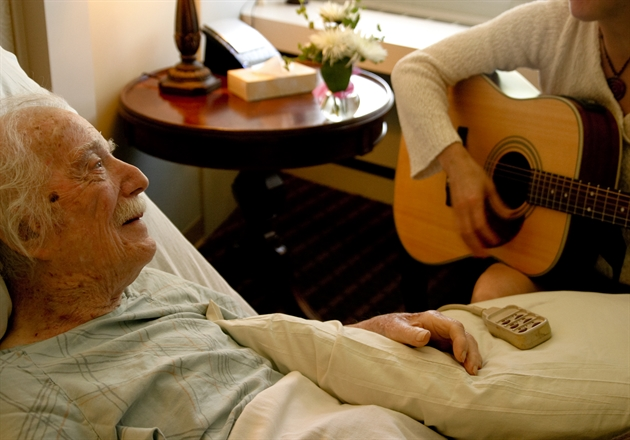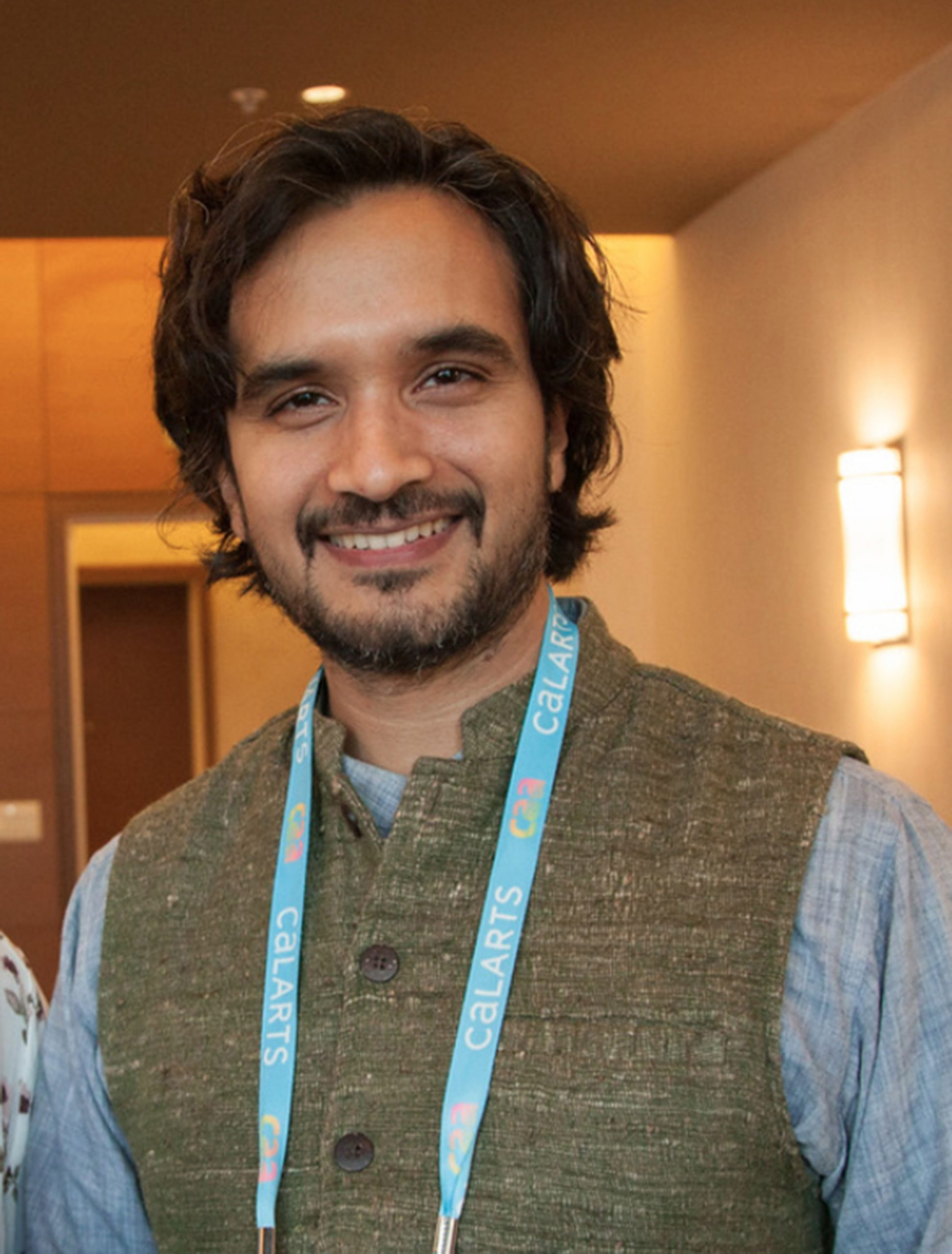The concept of a palliative care musical may sound unusual at first, but “Night Side Songs” by Daniel and Patrick Lazour has brilliantly transformed this sobering subject into an engaging theatrical experience. Set against the backdrop of cancer, this powerful musical intertwines the stories of patients, caregivers, and healthcare professionals, providing deep insights into the emotional journey of illness. Inspired by Susan Sontag’s reflections on the darker side of life, the show invites audiences to explore the often-ignored conversations surrounding death and dying. Under the guidance of palliative care specialist Susan Block, the musical not only highlights the struggles faced by those with terminal sickness but also emphasizes the importance of human connection through arts and culture. As theater and health converge, “Night Side Songs” offers an innovative and heartfelt perspective on the role of music in understanding palliative care and living with illness.
Exploring the realm of serious illness through the arts, this innovative performance delves deep into themes of compassion and care in the face of death. It showcases the profound narratives of those affected by terminal disease, whether as patients, family members, or medical practitioners. With an emphasis on wellbeing and emotional support, the production encourages dialogue about the heavy realities of life-threatening conditions, reinforcing the significance of community and shared experiences. By incorporating elements of performance art, this poignant interpretation shifts the focus to the vital interplay between healthcare and the human spirit. Thus, this musical shines a light on the pressing need for open discussions surrounding end-of-life care and the insights it brings.
The Intersection of Music and Palliative Care
Palliative care and music have a profound connection that touches on the emotional and psychological aspects of healing. In the realm of healthcare, palliative care strives to alleviate suffering for patients with serious illnesses, emphasizing the quality of life, even amidst pain and uncertainty. Enter ‘Night Side Songs,’ a groundbreaking musical that channels these very sentiments, demonstrating how musical expression can aid in understanding and navigating the complex emotions surrounding cancer and end-of-life experiences.
By integrating the arts into palliative care, productions like ‘Night Side Songs’ not only provide entertainment but also foster dialogue around the often-taboo topic of death. Through its narrative and musical score, it presents the struggles and triumphs of those affected by cancer, highlighting the essential human experience. The artistic representation of personal stories can encourage families and caregivers to engage in conversations about emotions, fears, and hopes, making the daunting subject of mortality more approachable.
Insights from Palliative Care Specialists
Experts such as Susan Block play a vital role in bridging the gap between healthcare and the arts. With over thirty years of experience in palliative care, Block’s perspective brings an invaluable depth to ‘Night Side Songs.’ Her involvement in the musical’s development highlights how insights from healthcare can enhance artistic expressions that deal with serious ailments like cancer. The collaboration produces a richer narrative that resonates with audiences, reflecting the true essence of palliative care’s mission.
Through her guidance, the Lazour brothers were able to create a poignant experience that illustrates both the physical and emotional trials faced by patients and their families. Block’s advocacy for candid conversations about death is mirrored in the musical’s narrative, pushing boundaries within the traditional context of theater. This partnership exemplifies the transformative potential of integrating palliative care insights with performing arts, ultimately sparking necessary dialogues on life, illness, and mortality.
The Role of Theater in Promoting Health and Healing
Theater has long served as a therapeutic outlet for exploring the human experience, particularly in the context of health and illness. Productions like ‘Night Side Songs’ invite audiences to reflect on their own relationships with illness, grief, and healing within a communal experience. By presenting stories of those battling cancer, the show not only raises awareness but also provides comfort and solidarity to patients and families grappling with similar struggles.
Furthermore, performances in intimate spaces create a unique atmosphere that encourages emotional engagement. As audience members come together in smaller venues, they share a collective experience, fostering a sense of community. This theater-in-the-round format used by ‘Night Side Songs’ heightens the connection between performers and attendees, facilitating an environment where open discussions about health concerns, such as those surrounding palliative care, can flourish.
Exploring the Emotional Landscape of Cancer Narratives
Artistic representations of cancer narratives in ‘Night Side Songs’ serve to shed light on the often hidden emotional landscapes of those affected. Music and storytelling in this context become tools for articulating feelings that are typically suppressed. By showcasing the intricate dynamics between patients, caregivers, and healthcare providers, the musical taps into shared experiences of vulnerability and resilience, making it relatable for anyone touched by serious illness.
The emotional weight conveyed through each character’s journey allows audiences to witness the multitude of responses to life-altering diagnoses. It is in these moments of vulnerability that the production resonates most deeply, bridging the personal with the universal. ‘Night Side Songs’ emphasizes that while the experience of cancer can be isolating, there exists a shared humanity that evokes empathy, community, and ultimately, healing.
Breaking the Silence on Death and Dying
As Susan Block articulated, a significant aspect of palliative care is addressing the silence surrounding death and dying. ‘Night Side Songs’ boldly confronts this silence, utilizing the medium of musical theater to foster open conversations about mortality. It encourages audiences to face topics that are often avoided in everyday discussions, helping to dismantle the stigma associated with expressing fears and emotions related to death.
Through engaging storytelling and lyrical exploration, the musical dismantles the barriers of communication. By inviting both laughter and tears, ‘Night Side Songs’ encourages individuals to express their thoughts and feelings about illness and dying, ultimately creating a space for healing the emotional wounds that often accompany serious health challenges. This groundbreaking approach allows palliative care insights to transcend clinical settings and inspire broader societal dialogue.
The Healing Power of Community Engagement in the Arts
Community engagement through the arts creates a platform for collective healing, especially in the context of serious illness. ‘Night Side Songs’ not only entertains but ignites conversations that strengthen bonds among audience members. The emotional resonance of the work makes it a catalyst for groups to come together, forging connections based on shared experiences of navigating health crises and loss.
Such engagement empowers both individuals and communities to address their fears and anxieties more openly. By participating in an artistic event focused on palliative care and cancer, audiences are reminded that they are not alone in their struggles. The shared laughter, tears, and catharsis experienced during performances highlight the importance of communal support, reinforcing the idea that healing can emerge from vulnerability in a supportive environment.
The Significance of Personal Storytelling in Theater
Personal storytelling can be incredibly powerful, especially when it comes to subjects like cancer and end-of-life experiences. ‘Night Side Songs’ serves as a vehicle for these narratives, allowing actors to embody real-life situations faced by patients and caregivers. This representation fosters empathy and understanding among audiences, as they witness the daily realities of those grappling with serious illness.
Moreover, the personal touch in storytelling helps bridge the clinical aspects of palliative care with raw human emotion. By presenting individual stories within a broader context, the musical embodies the essence of each experience while challenging the audience to reflect on their own lives and relationships. This unique portrayal highlights how palliative care can be viewed through the lens of compassion and support, rather than merely a clinical approach to end-of-life issues.
The Transformative Nature of Arts and Culture
Arts and culture have the remarkable ability to inspire change and provoke thought, especially in sensitive areas such as palliative care. ‘Night Side Songs’ exemplifies how a theatrical production can invite audiences to reflect on life, illness, and the inevitability of death. The innovative merging of these themes with artistic expression encourages a reevaluation of perceptions surrounding cancer and end-of-life care.
Through this transformative engagement, audiences are challenged to confront their own beliefs and feelings about mortality. The musical not only serves as a means to entertain but also to educate and enlighten, bridging the often vast gulf between medical knowledge and human experience. The cultural significance of such performances cannot be overstated, as they have the potential to influence societal norms regarding health and the dying process.
Creating New Conversations About Palliative Care
The premiere of ‘Night Side Songs’ marks a pivotal moment in creating new dialogues surrounding palliative care within the community. By integrating the voices of patients, caregivers, and healthcare providers, the musical presents a holistic view of the experience of living with serious illness. This multifaceted approach broadens the understanding of palliative care beyond clinical practices, linking it to the emotional and social dimensions of patient care.
As conversations sparked by this type of artistic endeavor continue, society could see a shift in how we approach discussions about death and dying. The engaging format of a musical makes it approachable, allowing people to share their experiences and feelings in a less threatening environment. By embracing palliative care insights within the narrative of ‘Night Side Songs,’ there is hope for fostering a culture where discussing end-of-life issues becomes a normal and supportive part of our shared human experience.
Frequently Asked Questions
What is ‘Night Side Songs’ and how does it relate to palliative care?
‘Night Side Songs’ is a musical that explores the themes of life, illness, and death through the voices of patients, caregivers, and medical professionals, inspired by the insights of palliative care specialist Susan Block. It tackles the emotional and psychological experiences surrounding cancer and end-of-life care, aiming to foster conversation about palliative care.
How does ‘Night Side Songs’ portray the experiences of cancer patients in palliative care?
The musical ‘Night Side Songs’ poignantly reflects the experiences of cancer patients by depicting their struggles, emotions, and relationships. Through powerful storytelling and music, it gives voice to the complex feelings associated with palliative care, emphasizing empathy, understanding, and community among those affected by serious illnesses.
What role does music play in the palliative care themes of ‘Night Side Songs’?
Music in ‘Night Side Songs’ serves as a therapeutic tool that deepens emotional resonance and connection, allowing audiences to engage with the often challenging themes of illness and death in palliative care. By inviting the audience to participate, the musical creates an intimate environment where shared emotions and reflections on end-of-life experiences can flourish.
Who are the creators behind ‘Night Side Songs’ and what influenced its development regarding palliative care?
Daniel and Patrick Lazour are the creators of ‘Night Side Songs,’ which was developed with guidance from Susan Block, a leading palliative care specialist. Their collaboration involved extensive research into end-of-life care and patient experiences, ensuring that the musical accurately reflects the intricacies of palliative care and the human condition.
Where can I watch ‘Night Side Songs’ and how does its staging enhance the experience of palliative care discussions?
‘Night Side Songs’ is being performed at the Cambridge Masonic Temple and Hibernian Hall, chosen for their intimate settings that allow for theater in the round. This configuration fosters a closer connection between the audience and performers, enhancing the experience of discussions about palliative care and making the themes of the musical more impactful.
How can ‘Night Side Songs’ contribute to public conversations about death and palliative care?
‘Night Side Songs’ acts as a vital conversation starter, helping to normalize discussions about death and the importance of palliative care. By addressing the realities of serious illness through narrative and music, it encourages audiences to reflect and converse openly about these sensitive subjects, ultimately reducing the stigma surrounding end-of-life care.
What feedback has ‘Night Side Songs’ received from healthcare professionals about its portrayal of palliative care?
Healthcare professionals, including Susan Block, have praised ‘Night Side Songs’ for its accurate and emotionally evocative portrayal of the palliative care experience. Feedback highlights the musical’s ability to encapsulate the voices of patients and caregivers, making it a significant contribution to the arts and culture dialogue surrounding end-of-life issues.
| Key Point | Details |
|---|---|
| Susan Block’s Role | Palliative care specialist and founding chair at Dana-Farber, guided the development of “Night Side Songs.” |
| Musical Theme | Explores experiences of cancer patients, caregivers, and clinicians. |
| Audience Engagement | Performed in intimate venues to foster connection, includes invitation to sing along. |
| Block’s Insights | Emphasizes the need to discuss end-of-life issues and the common silence around it. |
| Historical Context | Pioneering efforts in palliative care started gaining recognition since the 1980s, showing growth in this specialty. |
Summary
The palliative care musical “Night Side Songs” offers a profound exploration of the complexities surrounding illness and end-of-life conversations. As palliative care gains recognition, this musical invites audiences to engage with challenging topics, breaking the silence often surrounding death and dying. Directed by renowned professionals, it shares deeply moving stories that resonate with anyone touched by serious illness, making it an essential experience for both patients and families alike.



